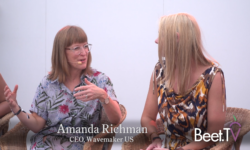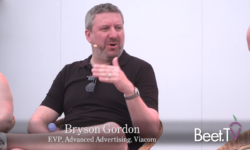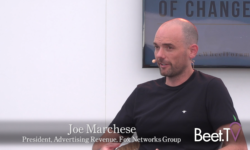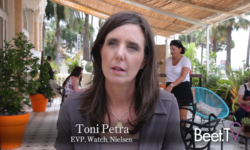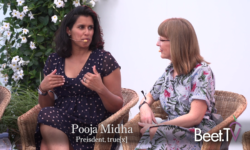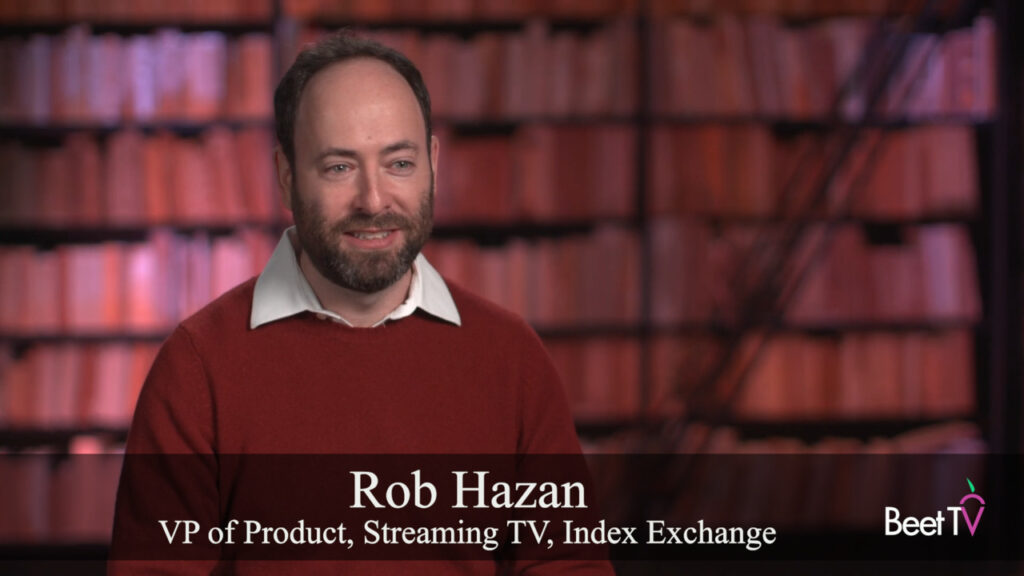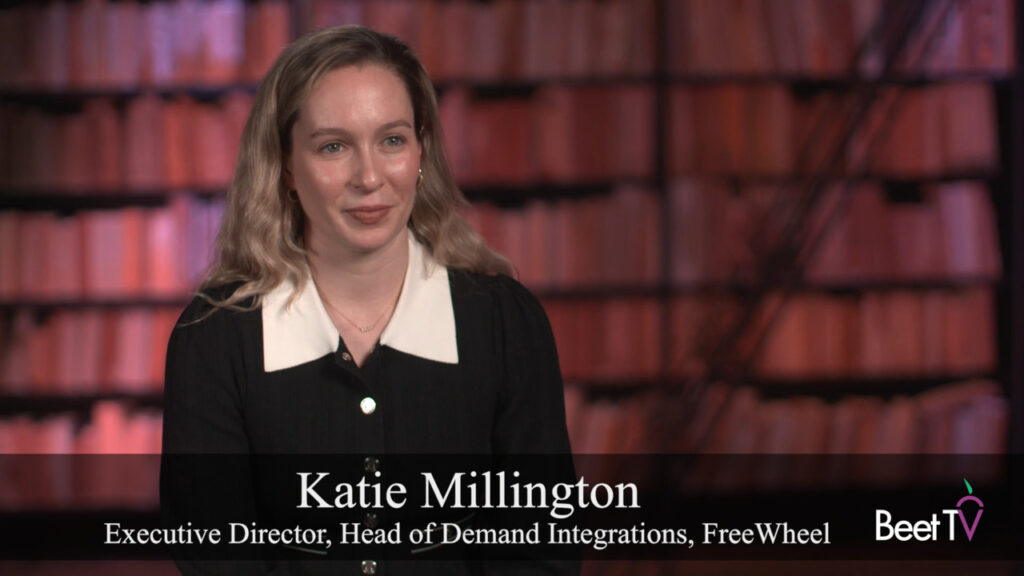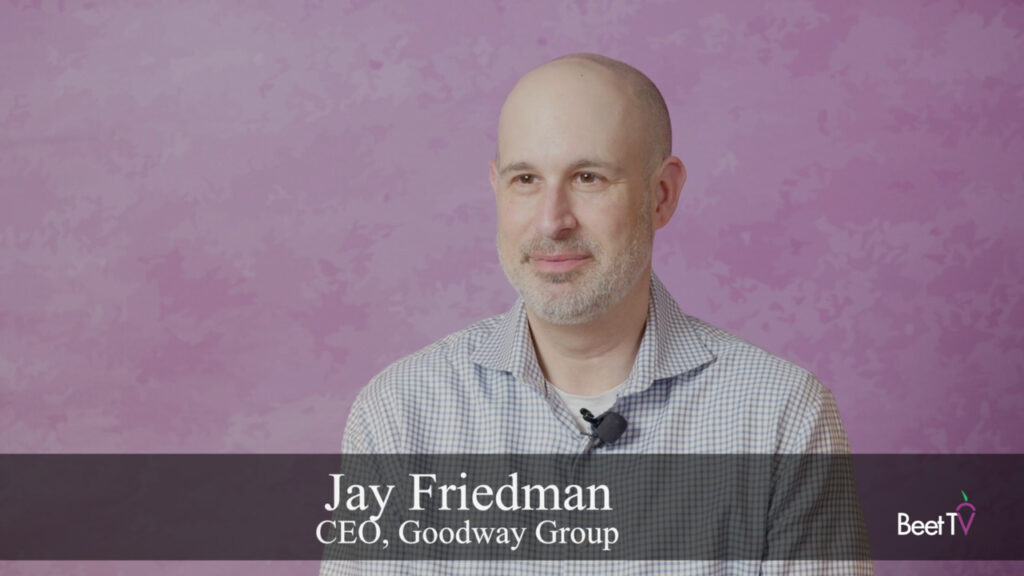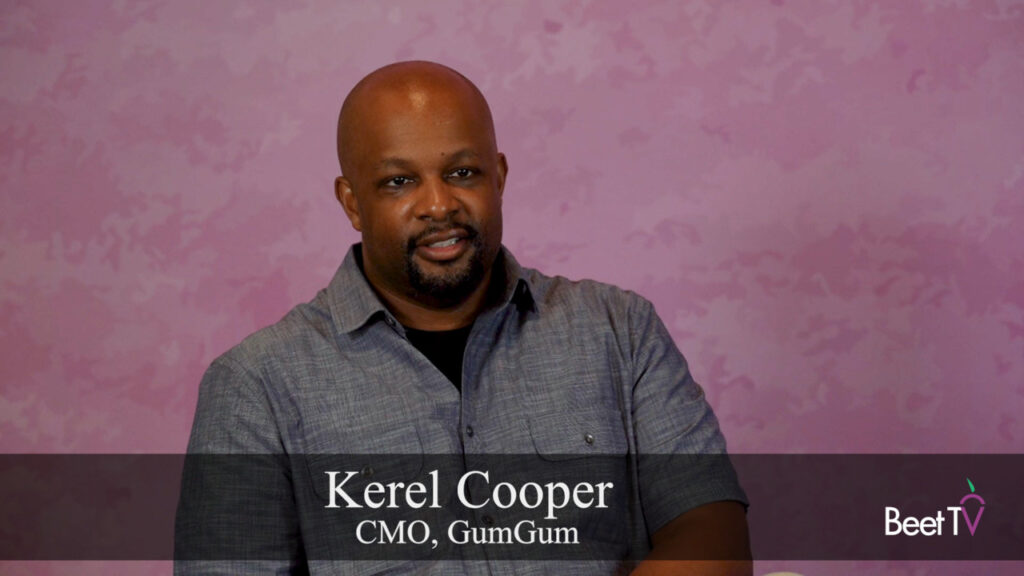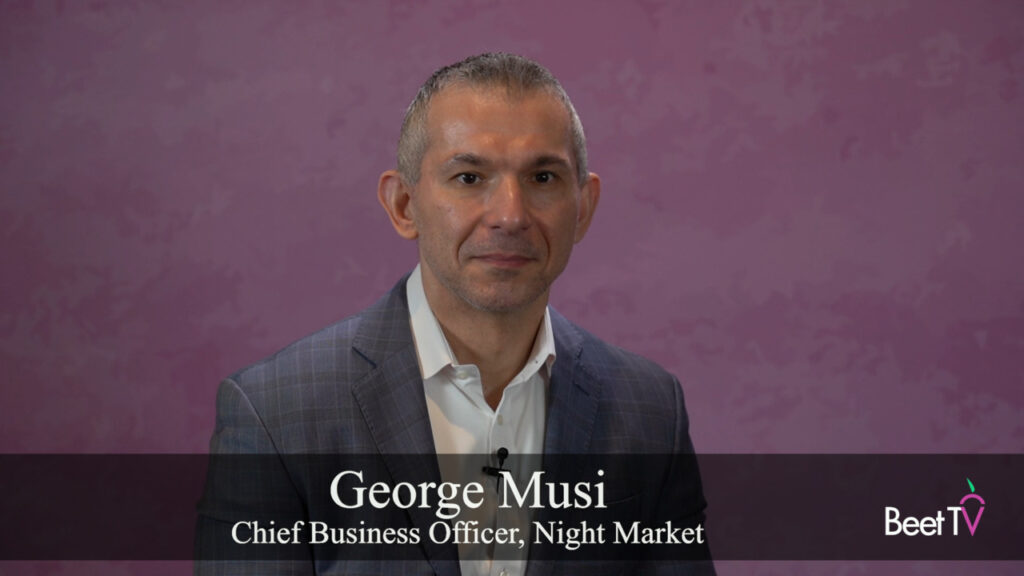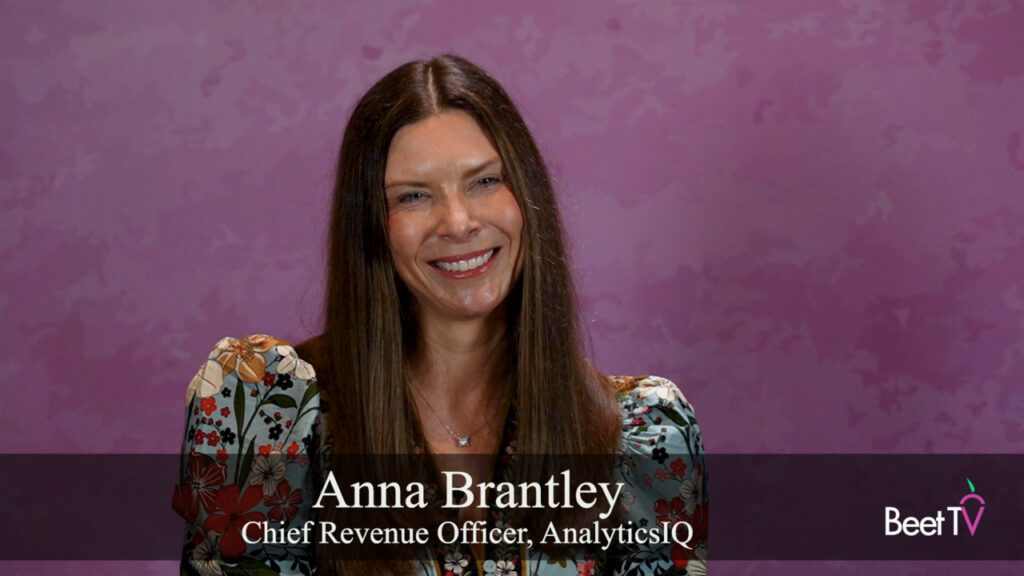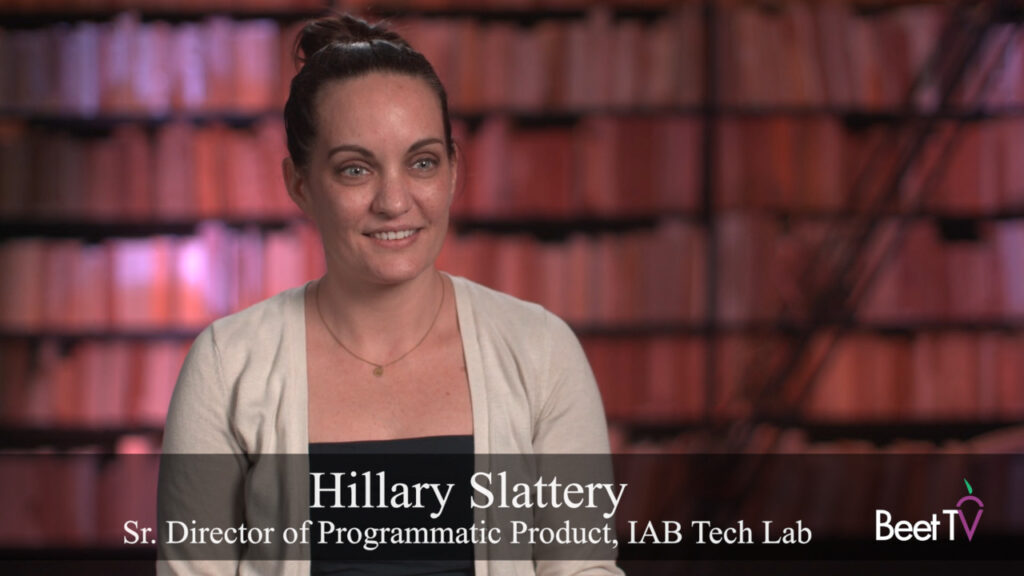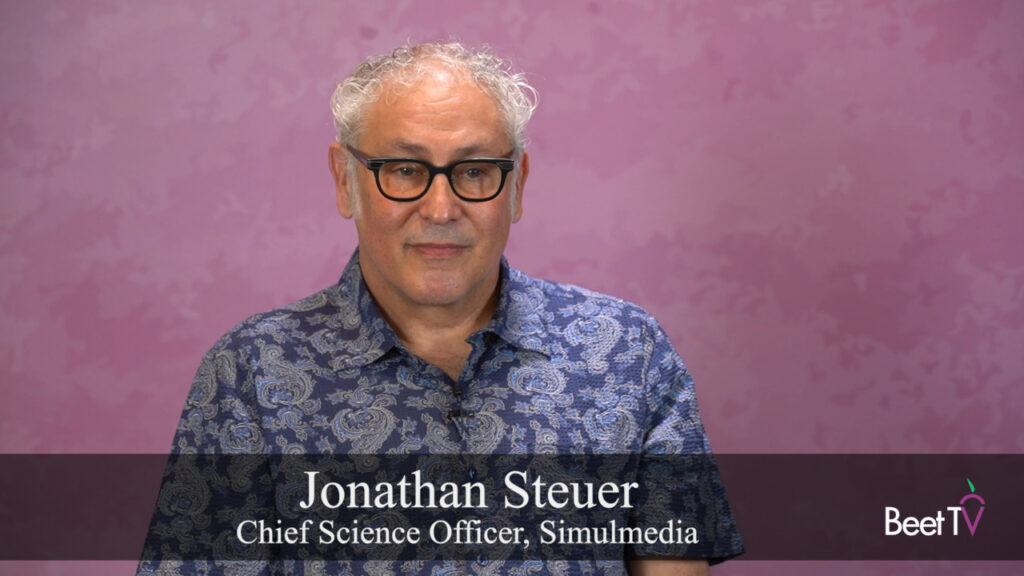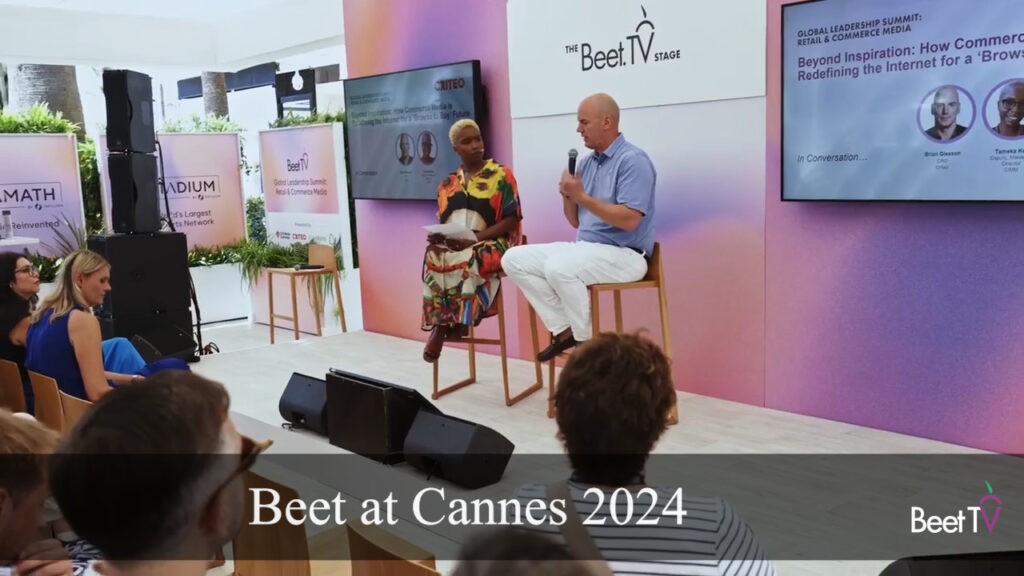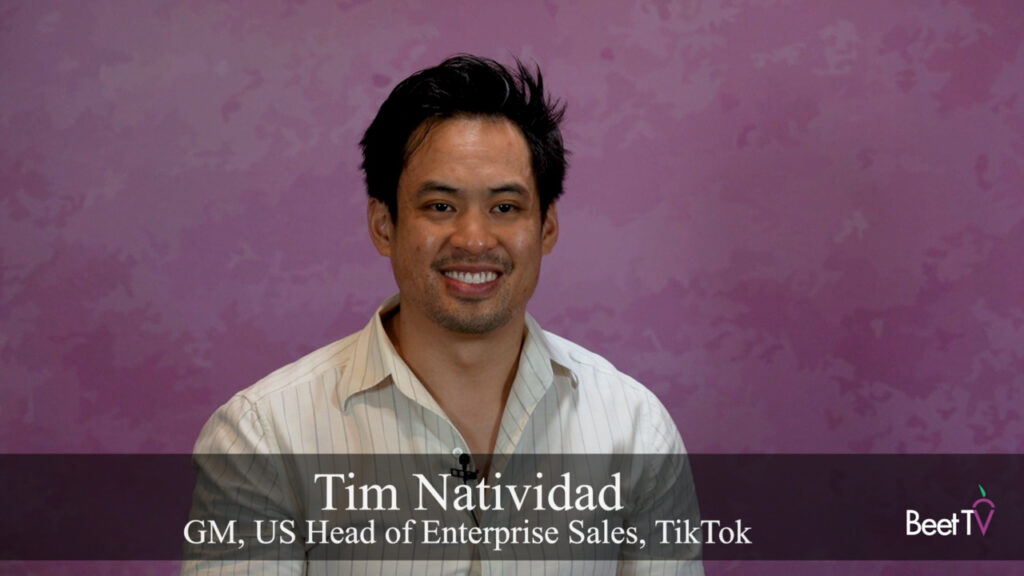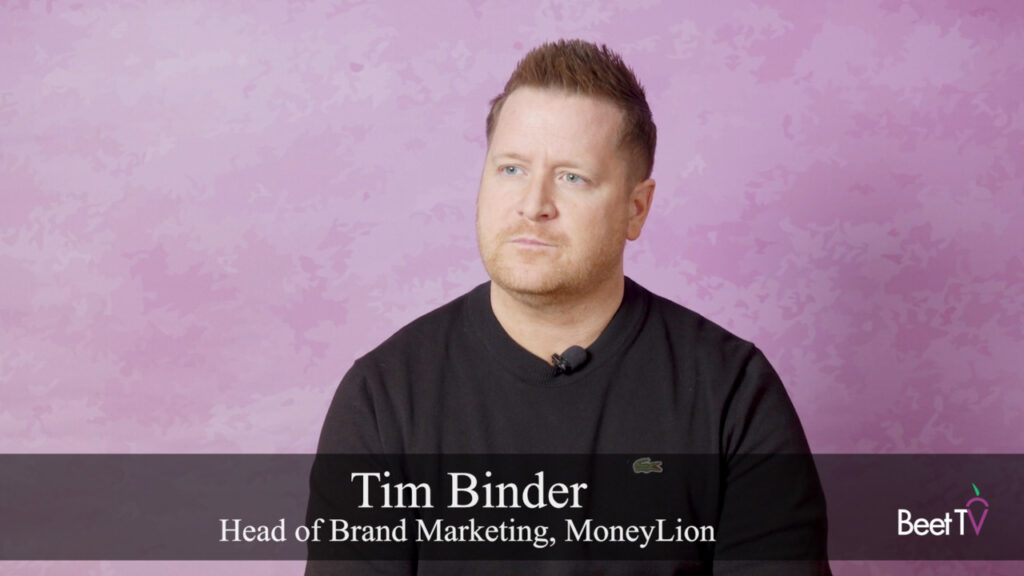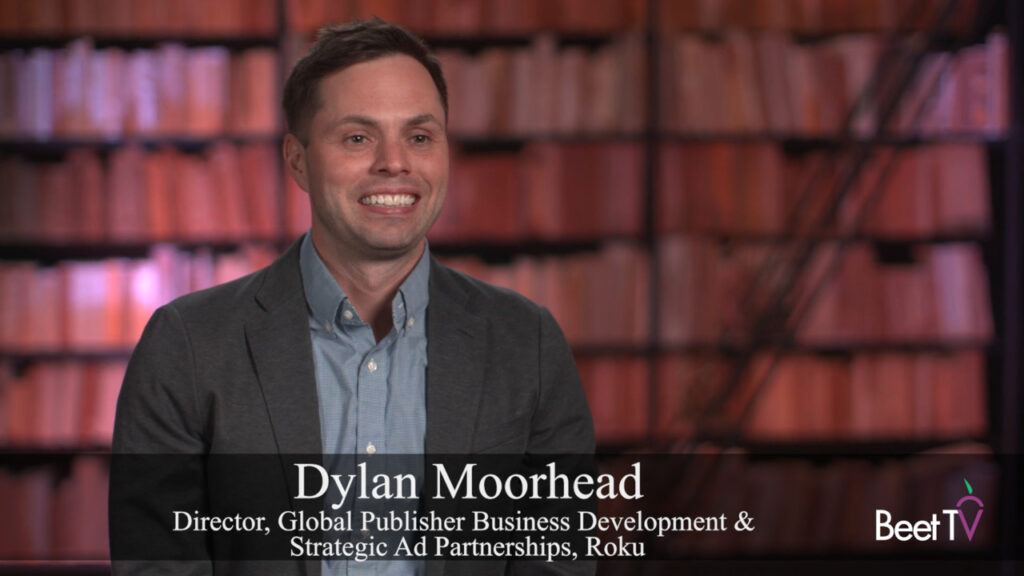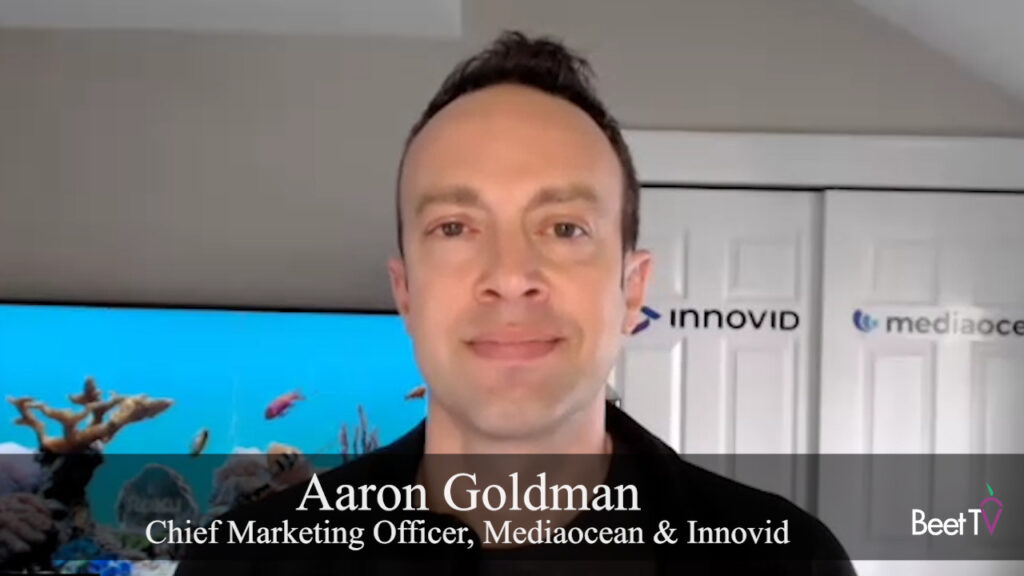CANNES – Just because Joe Marchese is probably the most outspoken advocate for reducing video advertising load and giving consumers more choices doesn’t mean he’s naïve about the challenges involved. Give him 20 minutes to explain those hurdles and lunar landings can seem simpler to achieve.
Such was the case at the 2018 Cannes Lions International Festival of Creativity when Marchese was interviewed on stage by Dave Clark, GM of Comcast’s FreeWheel, as part of the FreeWheel Forum on the Future of Television.
Never one to mince words, Marchese described the complexity of trying to figure out just how many commercials a given consumer is willing to watch on a given platform and how sellers like Fox should price newly emerging ad formats.
What’s not complicated is the silent clock ticking in the background for an industry that is known to advance in capsulized increments, according to Marchese.
President of Advertising Revenue at Fox Networks Group, Marchese was blunt about “what sucks” about television. “TV and advertising have been for so long negotiating with each other and they didn’t have to worry about a third party in the negotiation. Building a business model for consumers first, that’s what’s different,” Marchese said.
“Why does anybody like you?” asked Clark.
“I’m not sure anyone does. I say what other people I think are thinking, I hope,” Marchese responded.
The ticking clock analogy refers to the two or three years he estimates might pass “before you start to see massive, tectonic shifts in how viewers behave.”
Clark: “Is there a simple way to think about the amount of advertising that consumers will accept?”
“It’s variable,” said Marchese. “The real problem is we haven’t even gotten to how complex it’s actually going to be.”
Since consumers are not “some giant, homogenous group of people” but individuals who value their time differently at different times, “I think we have to have a test and learn approach to what’s intrusive and what isn’t.”
That approach will reveal that there is content people are willing to endure ads to access “and there’s content people won’t sit through ads to get,” Marchese said. “Google’s already doing this in a lot of places. On YouTube, not everyone sees the same ad load. I think TV has to get a little bit smarter about when and where.”
Asked by Clark whether advertisers are willing to pay more for exclusivity in a commercial break, Marchese said “They have and they are” while noting that Fox’s two-ad JAZ pods “sold out early in the Upfront.”
Nonetheless, there’s no easy formula at this point for exactly how much to charge because marketers in certain categories might be willing to pay more, according to Marchese.
“The real problem is, saying what are they worth or how much more is so relative to who buys it. And so until these things are out there and the market can get set, we don’t know how much more yet.”
As a founder of engagement-ad pioneer true[X], a startup that Fox acquired for approximately $200 million, surely Marchese has some advice for TV networks, said Clark.
“Be prepared to work in chaos, things are going to change,” said Marchese before explaining that companies like Amazon, Apple and Netflix are in the video space “because they want to be the operating system for peoples’ lives, but people choose their operating system based on where the best stories are.”
Citing FX, Clark asked whether the highly awarded network holds lessons for other networks. Marchese said it was among the first to abandon the model of producing cheap programming in bulk to fill a 24-hour schedule. This helps to explain why when it comes to Emmy and Golden Globe awards, the most have gone to HBO, Netflix and FX, “and only one of those still sits on a cable-operated system, ad-supported,” Marchese said.
Asked by Clark whether he’s worried when he sees people like Shonda Rhimes leaving ABC and Ryan Murphy exiting Fox to join up with Netflix, Marchese said Ryan indicated that interruptive ads weren’t his main motivation.
“Shows had to be exactly 42 minutes and the episodes had to have exactly these arcs,” Marchese observed. “Then you add in the fact you’re scheduling to a clock that has ads in very particular breaks. When they add a new break, they actually have to add a new act to the show and that’s a lot of actual work and creativity.”
On a positive note, Marchese said that when Fox announced its JAZ pods, Seth McFarland said he wanted them for the entire season of The Orville. “That’s a creator being excited about a better ad system,” said Marchese.
This video is from a series of videos and sessions produced in partnership with FreeWheel at Cannes 2018 as part of the FreeWheel Forum on the Future of Television. You can find more videos from this series here.







